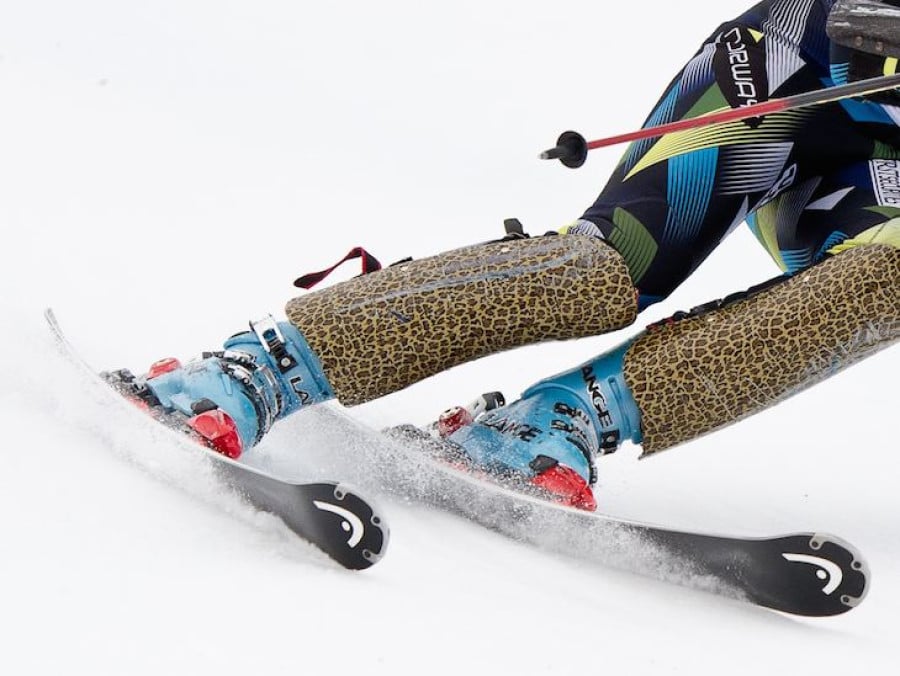Disputes arising out of or relating to the 2014 Olympic Winter Games in Sochi Part 2

In Part one of this two part series, the authors identified the relevant bodies involved in Olympic disputes and highlight various pre-Games selection procedure cases from the 2014 Olympic Winter Games in Sochi.
Part two will focus on how disputes that occur at the games are resolved and the mechanisms involved, and will highlight the cases that arose at the 2014 Olympic Winter Games in Sochi and their eventual outcomes.
PART 2: THE COURT OF ARBITRATION FOR SPORT AD HOC DIVISION IN SOCHI
The Ad Hoc Division (“AHD”) of the Court of Arbitration for Sport (“CAS”), first convened for the 1996 Olympic Games in Atlanta, was created to provide a final resolution within 24 hours for any dispute arising during the Olympic Games and is free of charge for anyone participating in the Olympic Games. In addition to the Olympic Games, ad hoc divisions have been created for the Commonwealth Games, the UEFA European Championship, and for the 1996 FIFA World Cup, among others. The AHD for the 2014 Olympic Winter Games in Sochi was seated on 28 January 2014 and remained in place until the closing ceremonies on 23 February 2014. (see part one for further information on the remit of the CAS AHD)
All told, four appeals were filed with the CAS AHD panel during the Sochi Games. Three dealt with entry of an athlete in the Games and one challenged an event result.
Issuing their decision on 4 February 2014, the arbitrators held that the decision by the ASF and AOC was based on “a legitimate sports performance justification” and was not in violation of the Olympic Charter. The Panel noted that under Rule 44.4 of the Olympic Charter a National Olympic Committee may only select athletes who have been recommended by a national federation and that the other athletes who had been nominated for other quota places had been nominated by the ASF unlike Ms. Bauer who was not. Therefore there was no requirement for the ASF to recommend to the AOC athletes who met the minimum qualification criteria of the International Ski Federation, and that even if a member of the ASF staff had suggested to Ms. Bauer that she would be recommended that person did not have actual authority to bind the ASF. The panel went onto state that even in a case where the national federation had no published criteria it still has a duty to not act arbitrarily, unreasonably or unfairly. In this instance the ASF was found not to have act in such a manner as it based its decision on assessment of the athlete’s performance, especially given her lack of technical ability and relative lack of potential of performance improvement vis a vis other younger athletes the ASF sought to send to the Games. Nonetheless, the Panel strongly recommended that the ASF “establish, identify, and publish clear criteria to enable athletes to determine in a timely manner the Olympic Games qualification standards they are required to meet to be recommended for selection by the AOC.”
Putting aside the legal issues, this case raises interesting philosophical and business questions about the impact NOC or local country NGB selection decisions should have on the CAS system, especially given that such decisions are resolved by other more local bodies domestically in other countries, as set forth in Part 1 of this article and that the sources of funds for CAS come from international bodies; permitting what are purely domestic cases to draw down CAS resources could burden the system administratively and financially in a manner that was unintended.
The arbitrators, however, disagreed with Mr Getty and held that to be eligible for the Sochi Games under the FIS Selection Criteria, two conditions must be satisfied: (1) an athlete must accumulate 80 FIS points, and (2) the athlete’s National Olympic Committee must have been allocated a quota place. Here, Mr Getty only obtained 65 FIS points which made him ineligible for the remaining quota spots. The Panel noted that no one at FIS had represented to Mr Getty anything about his qualifications for the Games. The Panel dismissed his arguments about his exclusion being contrary to the Olympic spirit because he was the only male freestyle skiing athlete from South America, the was popular with fans, and was an inspiration, as being policy considerations that the FIS could consider in devising their selection criteria or allocating spots, but were not of the type binding in a legal proceeding reviewing the application of the rules as the CAS was charged with doing. Thus, Mr Getty’s claim was dismissed in the arbitrators’ ruling on 5 February 2014.
The Panel held that it did not have jurisdiction to hear Ms Birkner’s appeal because the AHD only had jurisdiction over disputes that arose during the Olympic Games or during the period of the 10 days preceding the Opening Ceremony. Here, Ms.Birkner was notified of her non-selection on January 20, 2014, and although she claims she did not learn of the decision until January 22, 2014, this was well before the cutoff of January 28, 2014, which was ten days before the Opening Ceremonies, when the jurisdiction of the AHD took effect. Despite the absence of jurisdiction, the Panel considered the merits of Ms. Birkner’s case and found the case would have failed as the Panel did not find any evidence of discrimination or bias. The Panel noted that there was no evidence of bias based on Ms. Birkner’s family affiliation because 1) two of Ms Birkner’s siblings and a cousin were members of the Argentinean ski team in Sochi, 2) her brother was selected as flag bearer for the Opening Ceremony, and 3) her parents were present in Sochi as Argentinean ski team coaches. The Panel noted that there were no published selection criteria thereby giving FASA subjective discretion and that making a decision based on an athlete’s potential for future performance was not arbitrary, unfair, or unreasonable. The Panel issued its decision on 13 February 2014.
The SOC and COC conceded that the filing did not meet the fifteen-minute deadline, but argued that the failure should be excused because it was not possible, as a practical matter, to establish that Mr Bovolenta and Mr Midol had used the prohibited method during the race. However, the Canadian coach noticed the French coaches pulling and adjusting the lower pant legs of the French skiers. The event ended at approximately 3:00 pm. By 4:00 pm, the Canadian coach had reviewed photo and video evidence of the race, and was concerned that a FIS rule violation had occurred. The Canadian Team Leader subsequently notified the FIS equipment controller of the situation at 4:20 pm. Thus, by 4:20 pm, the SOC, ACA and COC were aware of the rule violation, but the SOC did not file a protest until 9:47 pm and the ACA and COC did not file a protest until 10:33 pm respectively. Given this timeline of events, the arbitrators held that the FIS rule requiring protests to be filed within fifteen-minutes of completion of the last competition run of the event was clear and that the ACA and COC had provided no evidence of why their delay should be excused and therefore the claim was dismissed.
The challenging parties argued unsuccessfully that it would be unreasonable to enforce the fifteen-minute deadline because it would have been impossible to gather the evidence required for such a challenge during that time. The panel noted that the federations were aware of the basis for the protest as early as 4:20 pm and even raised it then informally with FIS representatives and the delay of several hours in filing the appeal was not justified. Because the tribunal had determined that the filing time requirements were not met, the issues of the skiers’ underlying rule violations were not addressed. The arbitrators issued their decision on 23 February 2014.
While these arbitrators found that the time limits had not been satisfied on these facts, with several hours separating the required and actual times of filing, there is language in the decision opening the door to challenges later that do not necessarily meet a strict reading of a filing time limit where there are sufficient and reasonable bases for being unable to meet those deadlines and where the challenger otherwise presents a formal protest as soon as they reasonably are aware of the basis for a challenge. It remains to be seen whether a future CAS panel will review an appropriate case on this basis.
To continue reading or watching login or register here
Already a member? Sign in
Get access to all of the expert analysis and commentary at LawInSport including articles, webinars, conference videos and podcast transcripts. Find out more here.
- Tags: Alpine Canada Alpin | American Arbitration Association North American Court of Arbitration for Sport (AAA) | Canadian Olympic Committee | Comite Olimpico Argention (COA) | Court of Arbitration for Sport (CAS) | Court of Arbitration for Sport Ad Hoc Division | Dispute Resolution | Federacion Argentina de Ski y Andinisimo (FASA) | International Council of Arbitration for Sport (ICAS) | International Olympic Committee Anti-Doping Rules Applicable to the XXII Olympic Winter Games in Sochi in 2014 | International Skiing Federation (FIS) | IOC | IOC Executive Board | National Ice Skating Association of Great Britain and Northern Ireland (NISA) | Olympic Charter | Olympic Committee of Slovenia | Russia | Sochi 2014 | Sport Resolutions (UK) | United States Olympic Committee (USOC) | United States Olympic Committee Bylaws | Winter Games
Related Articles
- IOC sanctions Latvian Ice Hockey Player Ralfs Freibergs for failing anti-doping test at Sochi 2014
- Case law of the CAS Ad Hoc Division at the 2014 Sochi Olympic Winter Games: what did we learn?
- IOC Debrief of Sochi 2014 comes to a close in PyeongChang
- Disputes arising out of or relating to the 2014 Olympic Winter Games in Sochi Part 1
Written by
Jeffrey Benz
Jeff started his law practice in San Francisco, first with a small maritime and admiralty firm and then with a major international law firm (Coudert Brothers) as an antitrust, commercial and IP litigator. As a former General Counsel of the United States Olympic Committee (where he was responsible for all of the legal work (commercial, regulatory, governance, and otherwise) of the world’s largest and most successful National Olympic Committee), and other leading sports entities (including a stint as a California licensed professional boxing promoter, and separately as professional beach volleyball executive), and as a former athlete, Jeff's sports credentials are without compare, though sports disputes form only a part of Jeff’s overall dispute resolution experience and practice.






